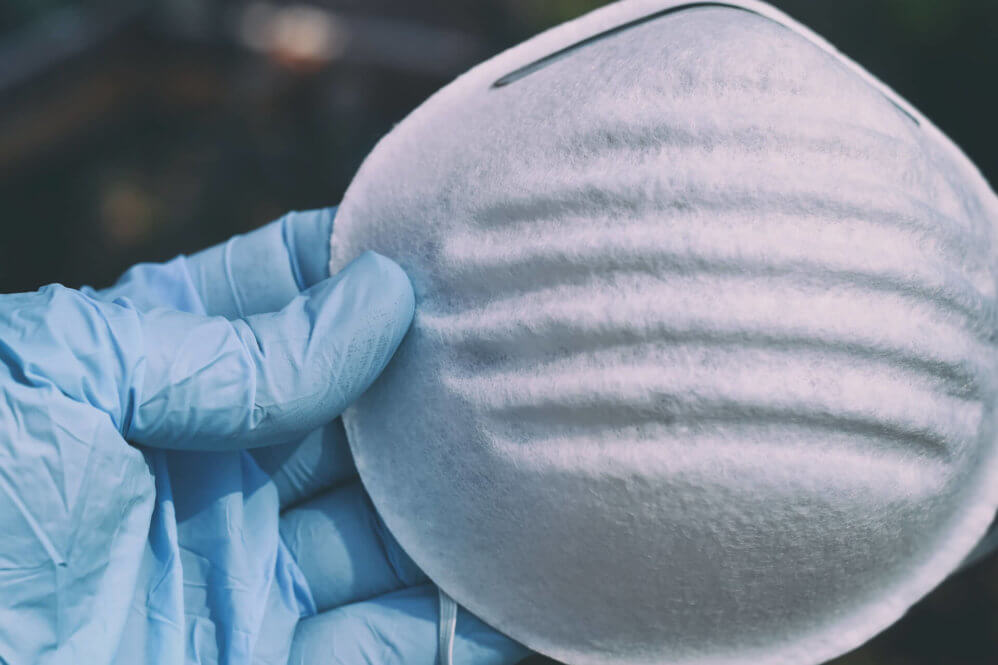
Black, Latinx communities in Charlottesville don’t all have access to COVID-19 testing. UVA’s medical lab wants to fix that.
CHARLOTTESVILLE-The University of Virginia is testing more than just their student population. COVID-19 hit Charlottesville’s Latinx and Black communities hard, but some of these groups don’t have access to mass testing. The UVA medical staff is helping with that. The university set up clinics, community testing events and sent workers to local nursing homes. Between that work and testing students, the lab processes between 300 to 400 tests per day.
Racial Disparities in Medicine
Since the pandemic began, health professionals have recommended mass testing to contain the spread of the virus. But testing isn’t equally available to everyone in the country. Many predominantly Black and Latinx communities don’t have the same access to COVID-19 testing as their white counterparts, according to the Centers for Disease Control.
This, alongside other social issues, makes them more likely than other groups to contract and die from the virus. According to reports from the New York Times, Latinx and Black people are nearly twice as likely to die from the coronavirus as white people.
“The purpose of community testing is to decrease barriers for vulnerable populations,” said UVA medical professor Dr. Mo Nadkarni. “Minority populations are at higher risk, particularly the Latinx population who have been testing at a higher positivity rate than the general population.”
The Virginia Health Department’s data backs up this statement. In Charlottesville’s health district, Latinos make up approximately 24 percent of the reported cases but only make up 4.8 percent of the district’s population.
“The reason the testing program was started we were seeing a differential access to testing and care amongst our African-American and Latinx populations,” said Nadkarni. According to Dr. Nadkarni, the northern and western parts of the city are the most vulnerable to the virus. To address the need, UVA is specifically holding events in these parts of Charlottesville.
“We have a location in the Church of Incarnation that’s slightly north of the city,” said Nadkarni. “We also have a location at Mt. Zion First African Baptist Church that’s a little bit on the west side.” For two evenings, UVA rotates their sites to areas that are hotspots or where people request their services.
University Adjusts To Handle Testing
Unlike many colleges in the state, UVA has its own lab and testing supplies.
“UVA is providing its own supplies. The Virginia Department of Health is paying for the testing kits through a grant from the federal government,” said Nadkarni. The school also received a $250,000 grant that’s currently paying for other necessities like personnel and other COVID-19 related supplies.
Besides testing kits, the university is also offering “wraparound services” to help people who’ve tested positive for the virus. This includes food, masks, sanitizer, gloves and other necessities. They have also plans to educate the public on COVID-19 prevention.
“Education, education, education. It’s the most important thing,” said Nadkarni. “Hand washing. Sanitization. Social distancing. We’re trying to get with community groups to hand out fliers letting people know about these
UVA has enough supplies to deal with their demand says Dr. Nadkarni. The labs usually average about 300 to 400 tests a day. And that’s with the labs operating at half of its potential. If need be, the labs can run up to 750 to 800 tests daily. Usually the test results return in 72 hours.
“We’ve learned a lot since the beginning of July when we started doing this in earnest. And now we’re able to get 50 tests done in an hour. It’s gotten much more streamlined since we originally started,” said Nadkarni.
UVA’s Volunteers are Essential
Currently, UVA’s biggest concern is maintaining their large volunteer base. These volunteers are absolutely essential in keeping the school’s operation afloat. However, the job is very demanding and time consuming.
“They’re doing this four nights a week. And it can grind folks down a bit,” said Nadkarni. “We’re just trying to maintain and enhance our volunteer base.”
Most of their volunteers are UVA hospital employees and medical students. Other non-medical jobs, like greeters and traffic controllers, while not medical in nature are also equally important.
Politics

Democratic shakeup in Virginia primaries for governor, lieutenant governor
Richmond Mayor Levar Stoney quit his bid for governor and jumped into the race to be the Democratic nominee for lieutenant governor. The race for...

New Biden rule protects privacy of women seeking abortions
Under the new rules, state officials and law enforcement cannot obtain medical records related to lawful reproductive health care with the goal of...
Local News

Virginia verses: Celebrating 5 poetic icons for National Poetry Month
There’s no shortage of great writers when it comes to our commonwealth. From the haunting verses of Edgar Allan Poe, who found solace in Richmond's...

Join the fun: Recapping Family Literacy Night’s storybook adventures
When’s the last time you read a book aloud with a loved one? If it’s difficult to answer that question, then maybe it’s time to dust off that TBR...




